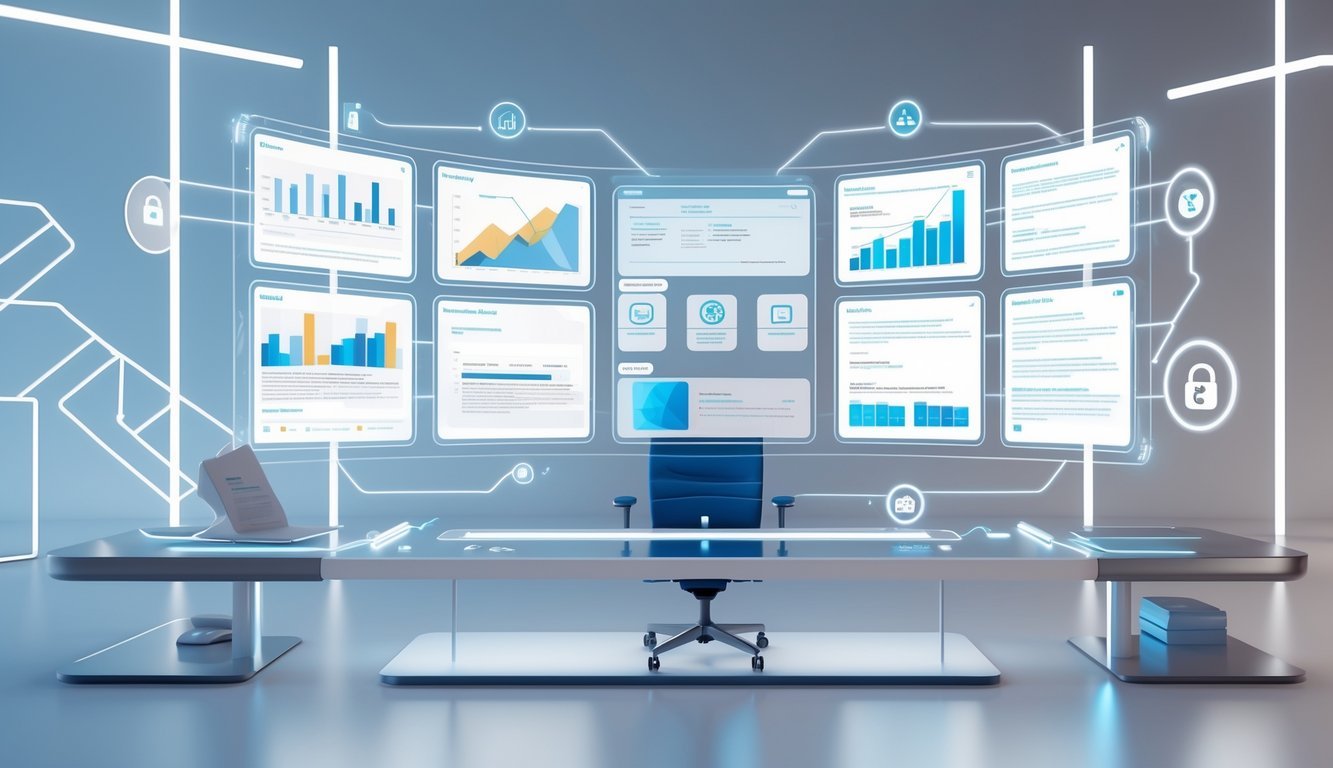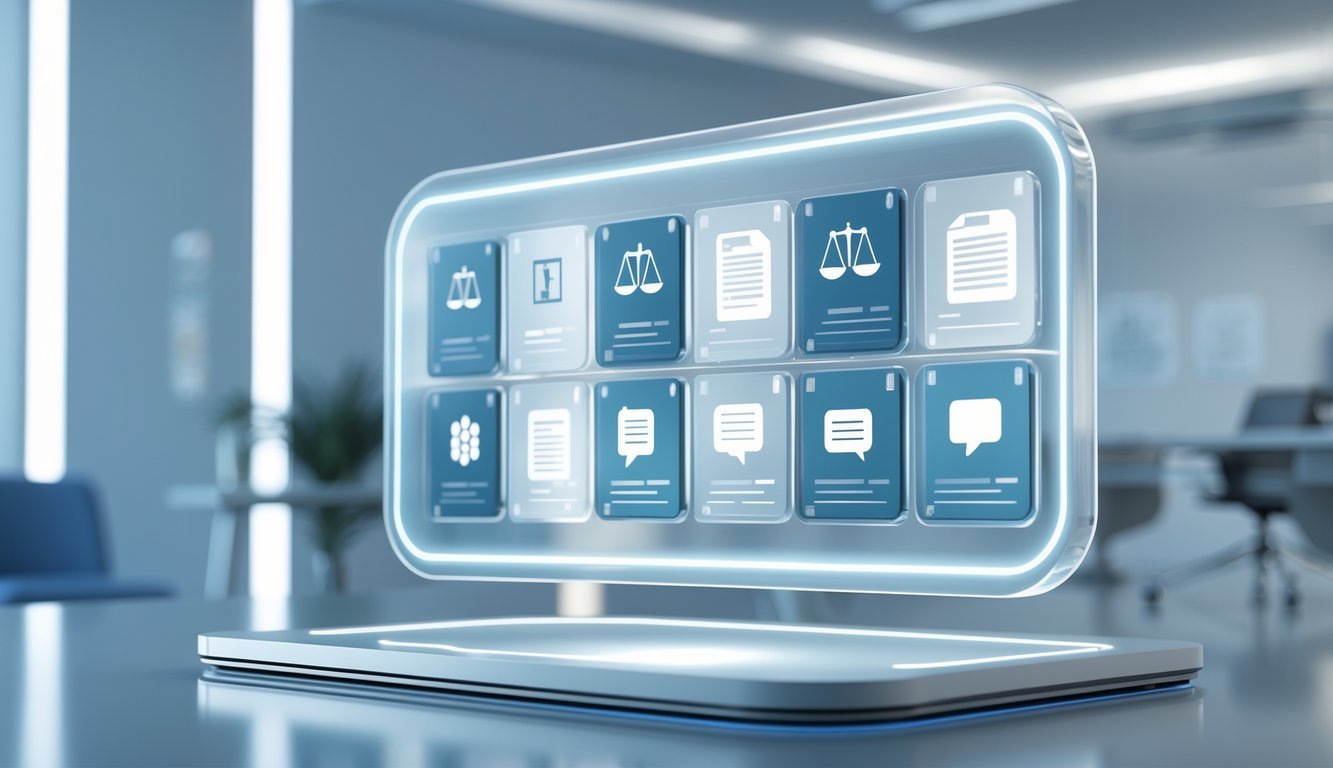Law firms juggle complex transactions filled with endless documents, deadlines, and details. Honestly, relying on scattered emails, clunky spreadsheets, and old-school checklists just slows things down and leads to confusion.

Legatics is a legal transaction management platform that helps lawyers collaborate and close deals with real-time checklists, status dashboards, and automated closing processes. Top law firms in the AmLaw 100 and UK top 100 use it, handling matters that start in over 60 countries.
Legatics doesn’t just organize transactions, it also captures valuable deal data. Law firms can use this info to make future transactions smoother and get a leg up on the competition.
Every deal becomes a chance to learn and work smarter next time.
Key Takeaways
- Legatics organizes legal transactions with real-time checklists and dashboards instead of messy emails and spreadsheets.
- The platform collects deal data during transactions, helping law firms get more efficient and strategic down the road.
- Leading firms all over the world trust Legatics to manage deals in more than 60 countries.
Core Features and Capabilities of the Legatics Legal Platform

Legatics gives law firms specialized tools for managing transactions, dashboards for real-time teamwork, and automated signature workflows. These features make it easier for legal teams to handle complex deals and keep documents under control.
Transaction Management Tools
Legatics offers a transaction management platform built for law firms working on tricky legal deals. It keeps all transaction documents in one place, which is a relief for anyone tired of searching through emails.
Legal teams track deal progress with customizable workflows. The system shows which documents need review and what’s still left to do.
It handles due diligence by creating organized data rooms. Legal professionals decide who gets access to what.
Legatics connects with the legal tech tools law firms already use. This way, teams don’t have to bounce between five different systems during a transaction.
The platform sends automated reminders and tracks deadlines. Teams get notified when key dates are coming up or a document needs attention.
Real-Time Collaboration and Dashboards
Legatics includes dashboards that show live updates on transaction status. Teams can see progress right away, no need to ask for another status report.
Multiple users jump in and work on the same transaction at once. The system keeps track of changes and manages document versions.
Dashboard views adjust for each role. Partners get a big-picture look, while associates focus on their own tasks.
The collaboration tools let team members comment and assign tasks right in the platform. It’s easier to talk about specific documents or issues without leaving the system.
Real-time notifications keep everyone in the loop. The platform sends alerts when someone uploads, reviews, or needs to sign a document.
Signature and Document Automation
Legatics makes collecting signatures easy, right inside the transaction management system. Legal teams send documents for signature without switching apps.
Document automation includes templates and clause libraries. Law firms can standardize language they use all the time and speed up drafting.
Electronic signature workflows show who’s signed and who hasn’t, plus they send reminders automatically. The system keeps an audit trail for every signature.
Document generation pulls info from transaction data to create forms automatically. That cuts down on manual entry and mistakes.
The platform works with Litera and other legal tech tools for document review and editing. This makes prepping documents for transactions much less painful.
Data, AI, and Legal Industry Impact

Data analytics and AI are changing the way legal platforms handle client info and automate workflows. These tools help teams make better decisions with more complete data, and they improve client service and transparency.
Legal Data and Analytics
Modern legal platforms have a real problem with data spread across too many systems. Law firm professionals use an average of 6.6 different tools for just one client matter, which is kind of wild.
This mess affects data accuracy in a big way. 83% of law firm professionals don’t trust that client information is up to date when they pull it up. That’s risky for firms that rely on having the right info at the right time.
Entegrata focuses on improving law firm data analytics by connecting info across different business systems. Legal platforms really need to bring data together in one place to fix these issues.
Main data headaches:
- Keeping records updated in multiple places
- Wasting time on manual data entry
- Struggling with version control
- Inconsistent reporting
AI Integration in Legal Workflows
Legal professionals are trying out AI in their daily work. 36% use AI for legal research, 33% for drafting documents, and 33% for automating workflows, especially for time-consuming tasks.
Most people want AI built into the tools they already use. 61% say they prefer AI features inside existing tools, not as separate apps. This is even more true for younger lawyers.
Harvey partnered with iManage to create smooth integrations. Coheso offers AI-powered platforms with connectors for contract management.
The trend is clear: more legal professionals see value in AI. Right now, 30% say AI brings a lot of value, but 54% expect it to be even more important soon.
Enhancing Client Satisfaction and Transparency
Investing in technology really does help build better client relationships. 88% of law firm professionals agree that technology improves client relationships, and for 43% of firms, client satisfaction is the top priority.
Almost everyone agrees that clients benefit from new tech. 99% of professionals believe clients benefit from more technology, and 46% say the benefits are significant. Better collaboration tools and consistent work quality play a big role here.
Top benefits for clients:
- Better communication through integrated platforms
- Faster responses thanks to automation
- More accurate data from unified systems
- Live updates on progress
Tech also helps make pricing clearer with improved time tracking and billing. Firms view legal accounting (39%) and billing systems (29%) as top areas to invest in for better client service.
Frequently Asked Questions

People usually want to know about platform access, jobs at Legatics, and what features the platform actually offers. There’s also some curiosity about Legatics’ data collection, financials, and who owns the company.
How can users securely access the Legatics legal platform?
Legatics gives secure access through standard enterprise security protocols. Law firms can set up the platform within their existing IT systems.
The platform connects with operational data like lawyer assignments, pricing, and time tracking. This setup lets firms keep everything secure while using full transaction management tools.
What career opportunities are available at Legatics?
Legatics hires professionals for a bunch of roles to support its legal tech platform. Daniel Porus serves as Chief Commercial Officer, for example.
Jobs usually cover technology development, client support, and business operations. The company focuses on building tools that help law firms manage deals and collect important business data.
What features does the Legatics app offer for managing legal transactions?
Legatics acts as a deal closing tool that helps lawyers finish transactions quickly. The system connects with both operational and legal data as the deal moves along.
Key features include transaction tracking and data collection. The platform gathers info about client relationships, pricing accuracy, and which partners are available for business development.
It collects market data and contract clauses during deals. The system also spots common sticking points that crop up when closing transactions.
Could you provide an overview of the latest updates and news about Legatics?
Legatics recently released a white paper on how legal tech tools collect valuable data while also making things more efficient. The research looks at whether the data collected is as valuable as the tech itself.
Their Chief Commercial Officer, Daniel Porus, takes part in industry talks about the value of data in legal technology. These discussions focus on how law firms can use collected data to improve business operations.
What has been reported about Legatics’ financial performance and revenue?
There’s not much public info about Legatics’ financials or revenue numbers. The company works in legal tech, which keeps growing, especially with a focus on data.
Industry experts suggest legal tech companies are seeing more value in data collection than just selling software licenses. This shift points to new revenue opportunities on the horizon.
Who currently holds ownership of the Legatics legal platform?
You won’t find much public info about who actually owns Legatics. The company works as a legal tech provider, helping law firms and legal professionals.
Legatics still runs on its own in the legal tech market. While other platforms have been bought or merged, Legatics keeps building out its transaction management and data collection features.

